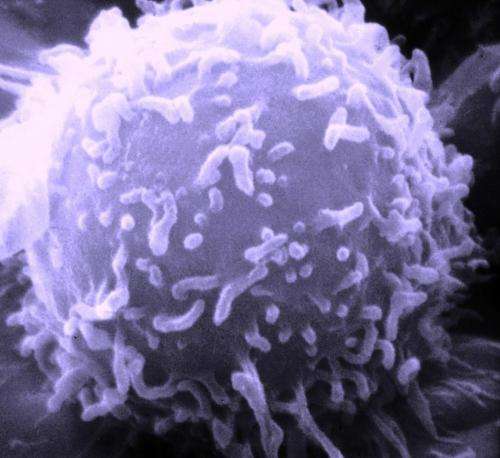Synthetic lethality offers a new approach to kill tumor cells

The scientific community has made significant strides in recent years in identifying important genetic contributors to malignancy and developing therapeutic agents that target altered genes and proteins. A recent approach to treat cancer called synthetic lethality takes advantage of genetic alterations in cancer cells that make them more susceptible to certain drugs. Alan F. List, MD, president and CEO of Moffitt Cancer Center, co-authored an article on synthetic lethality featured in the October 30 issue of the New England Journal of Medicine.
"Genetic alterations in cancer in humans may involve gene inactivation, amplification or inactivation," said List. These changes are not present in nonmalignant cells. Common chemotherapeutic agents aggressively kill tumor cells irrespective of genetic alterations. They also have a negative impact on normal cells and can cause significant side effects. Synthetic lethality harnesses the genetic differences between tumor cells and normal cells to minimize the effects on normal cells, and maximize a drug's effects on cancer cells.
Synthetic lethality can target a variety of cellular defects, including alterations in DNA repair, cell-cycle control and metabolism. This approach can also be used to target interactions between tumor cells and surrounding normal cells that promote tumor survival and oncogenes that drive tumorigenesis that are difficult to target directly. Many of the synthetic lethal drugs and targets have been identified in large-scale drug screens of the entire human genome.
An example of synthetic lethality is the recent approach being investigated to treat breast cancer patients with BRCA1 and BRCA2 mutations. BRCA1 plays an important role is repairing damaged DNA. Women who have mutations in BRCA1 or BRCA2 have an increased risk of developing breast and ovarian cancer because their cells cannot properly repair DNA. This suggests that BRCA mutated breast cancer cells may be more susceptible to drugs that target DNA. Laboratory studies have confirmed this hypothesis by showing that agents that target another DNA repair protein called PARP significantly kill BRCA mutated cells. Several PARP inhibitors are now being investigated in clinical trials in breast cancer patients, and early results are promising.
"The goal of current anticancer approaches is to offer individualized and highly selective therapy. The treatment model for many anticancer approaches has been expanded, with movement away from dose-intensive, non-targeted cytotoxic agents to combination chemoimmunotherapy, new therapeutic combinations and targeted agents," said List. Synthetic lethality approaches may provide an additional avenue for individualized patient treatment.
More information: New England Journal of Medicine, www.nejm.org/doi/pdf/10.1056/NEJMra1407390

















